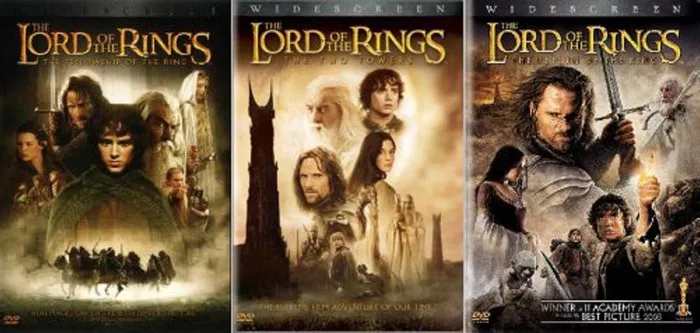In the annals of cinematic history, the question of “How Much Did Lord of the Rings Make?” invites us to journey through the realms of Middle-earth not only in the context of its narrative brilliance but also in the staggering financial success it achieved. This article navigates the financial landscape of Peter Jackson’s monumental trilogy, providing an in-depth exploration of box office figures, economic impact, and the lasting legacy of “The Lord of the Rings” in the realm of blockbuster filmmaking. As we delve into the economic tapestry woven by Frodo’s quest, we gain a profound understanding of the monumental success etched into the cinematic history of the 21st century.
Setting the Stage: The Cinematic Endeavor of a Lifetime
A Cinematic Odyssey Unveiled: The Birth of “The Lord of the Rings” Trilogy
In the early 2000s, director Peter Jackson embarked on an unprecedented cinematic endeavor, adapting J.R.R. Tolkien’s epic fantasy novel “The Lord of the Rings” into a groundbreaking film trilogy. This ambitious project, consisting of “The Fellowship of the Ring” (2001), “The Two Towers” (2002), and “The Return of the King” (2003), would not only redefine the fantasy genre but also rewrite the record books in terms of box office earnings.
Box Office Triumph: Numbers Beyond Imagination
The Fellowship of the Ring (2001): A Riveting Beginning
“The Fellowship of the Ring” premiered in December 2001 and immediately captivated audiences worldwide. The film, with its masterful storytelling and groundbreaking visual effects, set the stage for the financial triumph that would unfold over the trilogy. The box office earnings of the first installment surpassed expectations, foreshadowing the colossal success to come.
The Two Towers (2002): Sustaining Momentum
“The Two Towers,” released in 2002, sustained the momentum generated by its predecessor. The film’s epic battles, emotional depth, and seamless continuation of the narrative drew audiences back to theaters, contributing significantly to the trilogy’s overall box office prowess.
The Return of the King (2003): The Culmination of a Cinematic Epic
“The Return of the King,” the final installment, proved to be the pinnacle of the trilogy. Winning 11 Academy Awards, including Best Picture, the film became a cultural phenomenon. Its critical acclaim and emotional resonance with audiences propelled it to extraordinary box office heights, solidifying the trilogy’s place in cinematic history.
Box Office Records Shattered: The Financial Landscape
Global Box Office Dominance: A Phenomenon Unmatched
The collective box office earnings of “The Lord of the Rings” trilogy stand as a testament to its unparalleled success. The trilogy collectively grossed over $2.9 billion worldwide, making it one of the highest-grossing film franchises in history. This astronomical figure not only shattered records but also redefined the economic potential of epic fantasy storytelling on the big screen.
Individual Installments: Breaking Down the Numbers
Breaking down the box office performance of each installment provides a clearer perspective:
“The Fellowship of the Ring” grossed over $871 million globally.
“The Two Towers” surpassed its predecessor, earning over $926 million.
“The Return of the King” achieved unprecedented success, grossing over $1.1 billion and becoming one of the few films to cross the billion-dollar mark at the time.
Economic Impact Beyond the Box Office
Merchandising and Home Entertainment: Extending the Revenue Stream
The financial success of “The Lord of the Rings” extended beyond the box office. Merchandising, including DVDs, books, and other related products, contributed significantly to the economic impact of the trilogy. The enduring popularity of Middle-earth inspired a vast array of merchandise, creating a lucrative revenue stream.
Cultural Impact and Franchise Building: A Lasting Legacy
Beyond the immediate financial gains, “The Lord of the Rings” left an indelible mark on popular culture. The trilogy’s success paved the way for a surge in fantasy adaptations, influencing subsequent blockbuster franchises. Its cultural impact, coupled with ongoing interest in Middle-earth, has led to the development of related projects, including “The Hobbit” film trilogy and the forthcoming “Lord of the Rings” television series.
Conclusion: A Cinematic and Economic Legacy
In conclusion, the financial success of “The Lord of the Rings” trilogy is a tale of epic proportions, transcending the boundaries of traditional box office triumphs. The trilogy not only redefined the possibilities of fantasy filmmaking but also left an enduring imprint on the economic landscape of the film industry.
As we reflect on the astronomical box office figures, it becomes evident that “The Lord of the Rings” is more than a cinematic masterpiece; it is a cultural and economic phenomenon that continues to shape the way we perceive blockbuster filmmaking. Its legacy extends far beyond the trilogy itself, influencing the trajectory of fantasy cinema and exemplifying the economic potential inherent in a masterfully crafted cinematic narrative.
“The Lord of the Rings” trilogy stands as a beacon in the history of filmmaking, showcasing the transformative power of storytelling and the boundless heights that a cinematic epic can achieve. As the film industry evolves, the financial legacy of Middle-earth remains an enduring testament to the magic of cinema, where artistic brilliance and economic success converge in a tale for the ages.

